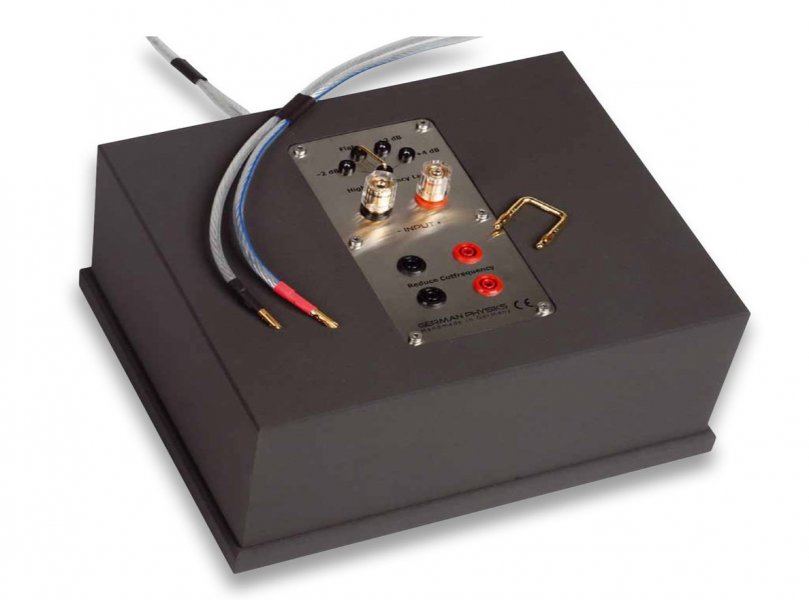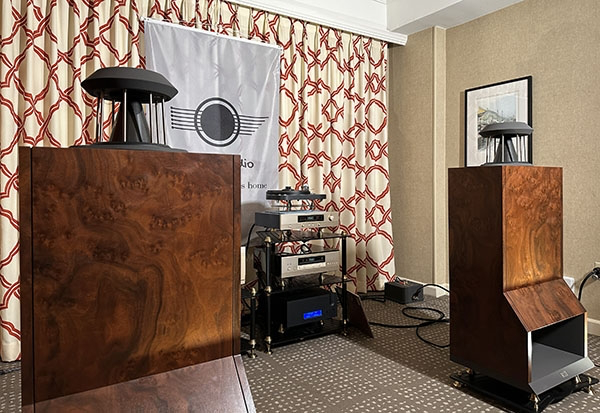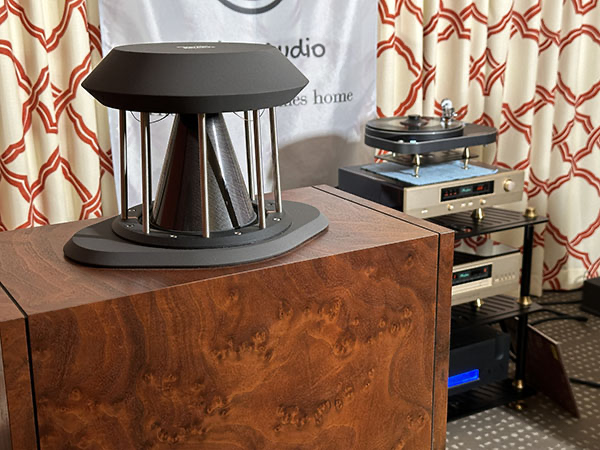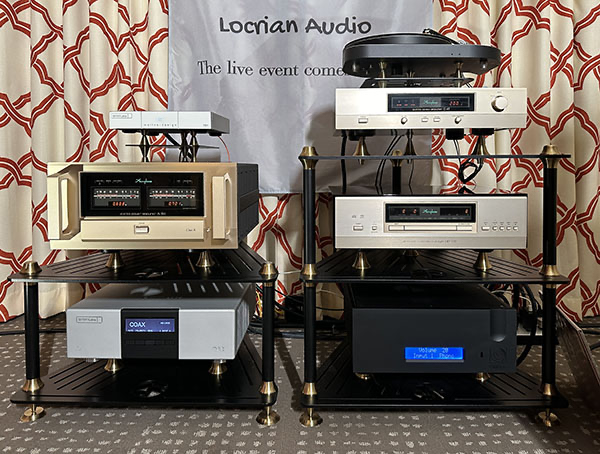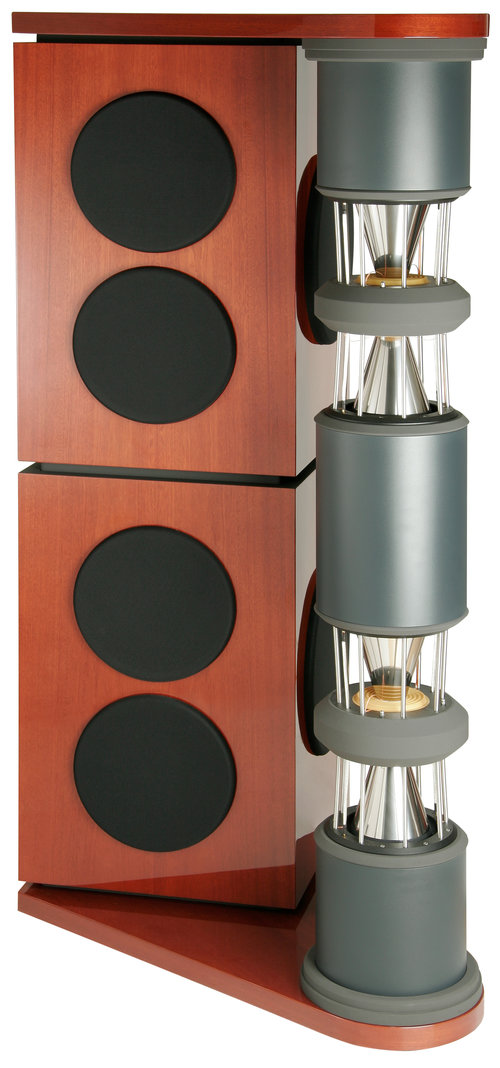Twelve years ago, I was completing my dream vacation home, with the living room overlooking the Aegean Sea, and ready to host a moderate audio system that was natural sounding. A discussion with Holger Muller from German Physiks led to the purchase of the Unicorn Mk 2, a single driver, horn loaded, omnidirectional speaker. I already owned the Borderland and was familiar with the GP “house” sound, so I took him on his word, without auditioning them.
It was detailed and analytical, yet very musical. All my friends were taken by the dynamics and the sound character of the speaker. It had natural sound with extended highs and deep bass, although the specs say it went down to 40 Hz only. It certainly felt that was significantly lower. No bass was missing from the performance and the proof was on how you felt the drums or the double bass on your chest. The midrange was full and realistic with the voices very palpable and engaging. Relying solely on the omnidirectional DDD for the entire frequency spectrum, you could experience the absence of a crossover and its associated benefits. There were no discontinuities or change in character from driver to driver, encountered on conventional speakers. Distortion and sonic stress were not present either, no matter the volume level.
The area that I was pleasantly surprised the most was on how the speakers were rendering live recordings. It was the most realistic “being there” that I had felt no matter which speaker I had heard (Yes, I know, there are many factors at play, and it could not be the only one). The realism of the piano and the drums were exemplary, mainly on how quick they were and at the right pitch. Over the years I discovered that Jazz, blues, world music and rock sounded the best, as the Unicorn is not afraid to perform at higher SPLs (90+ at the listening position) while remaining fully composed and maintaining a wide and deep soundstage, with plenty of “air” between the instruments.
Concluding, the Unicorn became one of our reference speakers. Everyone visiting, before they go home, insisted listening to The Name of this Band is Talking Heads, a live 2 LP set recorded between 1980-1981 by the Talking Heads. The pace and rhythm rendered was unparalleled, allowing some of us to relieve our NYC college days at CBGB. Now before they visit me, they ask, referring to the Unicorn: “Is the Psycho Killer” connected?
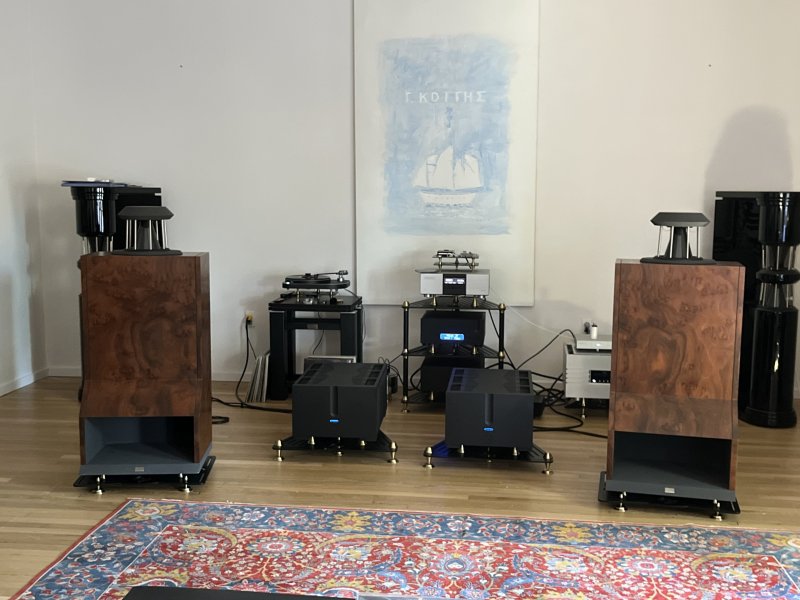
Associated equipment: Thales Compact II and Simplicity II tonearm; Shelter Harmony cartridge; EMM Labs NS1 Streamer; EMM Labs DA2 V2 DAC; Ypsilon PST 100 Mk2 preamplifier; Ypsilon Hyperion mono amplifiers; German Physiks Emperor Stereo Reference Amplifier. All interconnects and speaker cables from FM Acoustics and power cables from Audioquest.
It was detailed and analytical, yet very musical. All my friends were taken by the dynamics and the sound character of the speaker. It had natural sound with extended highs and deep bass, although the specs say it went down to 40 Hz only. It certainly felt that was significantly lower. No bass was missing from the performance and the proof was on how you felt the drums or the double bass on your chest. The midrange was full and realistic with the voices very palpable and engaging. Relying solely on the omnidirectional DDD for the entire frequency spectrum, you could experience the absence of a crossover and its associated benefits. There were no discontinuities or change in character from driver to driver, encountered on conventional speakers. Distortion and sonic stress were not present either, no matter the volume level.
The area that I was pleasantly surprised the most was on how the speakers were rendering live recordings. It was the most realistic “being there” that I had felt no matter which speaker I had heard (Yes, I know, there are many factors at play, and it could not be the only one). The realism of the piano and the drums were exemplary, mainly on how quick they were and at the right pitch. Over the years I discovered that Jazz, blues, world music and rock sounded the best, as the Unicorn is not afraid to perform at higher SPLs (90+ at the listening position) while remaining fully composed and maintaining a wide and deep soundstage, with plenty of “air” between the instruments.
Concluding, the Unicorn became one of our reference speakers. Everyone visiting, before they go home, insisted listening to The Name of this Band is Talking Heads, a live 2 LP set recorded between 1980-1981 by the Talking Heads. The pace and rhythm rendered was unparalleled, allowing some of us to relieve our NYC college days at CBGB. Now before they visit me, they ask, referring to the Unicorn: “Is the Psycho Killer” connected?

Associated equipment: Thales Compact II and Simplicity II tonearm; Shelter Harmony cartridge; EMM Labs NS1 Streamer; EMM Labs DA2 V2 DAC; Ypsilon PST 100 Mk2 preamplifier; Ypsilon Hyperion mono amplifiers; German Physiks Emperor Stereo Reference Amplifier. All interconnects and speaker cables from FM Acoustics and power cables from Audioquest.













